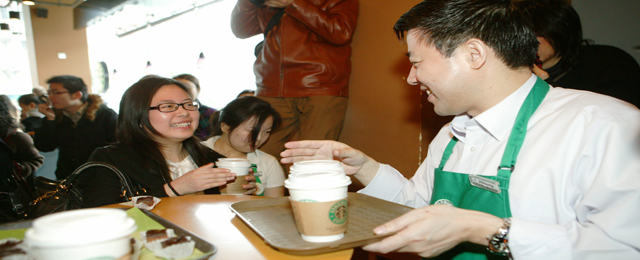Starbucks has been under fire recently over its prices. State media says the international coffee chain has been ripping off China’s coffee drinkers.
Under the Price Law and related regulations, if the price of a product is higher than the market price for similar products, then a company can be punished for illegal profiting. However, the high-end coffee market in the country is not perfectly competitive, so it is unclear whether Starbucks has violated the law.
Overly high prices usually occur in markets with insufficient competition, sometimes as a result of a monopoly or government interference. If more brands are allowed to enter the market, it would be impossible for Starbucks or other brands to earn unreasonable profits. The regulator should first ask itself whether Starbucks’ prices are higher in China than elsewhere because the market needs to open up more or because regulations need to be more effective.
The large difference in prices for certain products in China and abroad shows, on the one hand, the increasing consumption power of the Chinese people and the great potential of the market. On the other hand, international high-end brands that want to enter the market face many obstacles, including high tariffs and a fragmented market. Some Chinese manufacturers even prefer overseas markets to the one at home.
The key is that companies face high hidden costs when they enter the China market. On the surface there are high tariffs and taxes, but there are also a lot of hidden costs.
After CCTV’s report, Starbucks CEO Howard Schultz said: “Our cost of setting up the business in China and our cost in doing business in China is actually more than it’s been in many other markets, so that is why we charge more money.” He subtly pointed out the secret of the Chinese market. In an emerging market like ours, firms must pay a huge price to get their foot in the door. Skeptics of Starbucks’ pricing should look closely into the various extra costs foreign companies face in China.
Rational consumers will not make decisions that hurt their own interests. Chinese consumers will do their own price comparison, and they are free to think of Starbucks coffee as a costly signal of wealth and status, if they like. After all, buying a cup of Starbucks coffee here is much cheaper than going abroad for a sip.
*Read the original article here.






barbaric chinese.